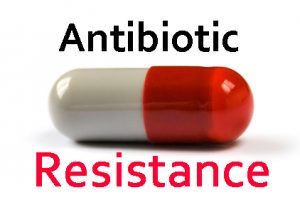- Home
- Editorial
- News
- Practice Guidelines
- Anesthesiology Guidelines
- Cancer Guidelines
- Cardiac Sciences Guidelines
- Critical Care Guidelines
- Dentistry Guidelines
- Dermatology Guidelines
- Diabetes and Endo Guidelines
- Diagnostics Guidelines
- ENT Guidelines
- Featured Practice Guidelines
- Gastroenterology Guidelines
- Geriatrics Guidelines
- Medicine Guidelines
- Nephrology Guidelines
- Neurosciences Guidelines
- Obs and Gynae Guidelines
- Ophthalmology Guidelines
- Orthopaedics Guidelines
- Paediatrics Guidelines
- Psychiatry Guidelines
- Pulmonology Guidelines
- Radiology Guidelines
- Surgery Guidelines
- Urology Guidelines
Antioxidant in green tea may have answer to threat of antibiotic resistance

Antibiotic resistance is on the rise globally.An excessive and indiscriminate use of antimicrobials has serious consequences: the proportion of bacteria resistant to antimicrobials is rapidly increasing around the world. Drugs are losing their efficacy, with important consequences for the health of animals but also potentially for humans.
Scientists at the University of Surrey have discovered that green tea hold key to reducing antibiotic resistance.They have found that a natural antioxidant commonly found in green tea can help eliminate antibiotic resistant bacteria and may be a major step towards combating antibiotic resistance.The study has been published in the Journal of Medical Microbiology.
The study has found that epigallocatechin (EGCG) can restore the activity of aztreonam, an antibiotic commonly used to treat infections caused by the bacterial pathogen Pseudomonas aeruginosa.
P. aeruginosa is associated with serious respiratory tract and bloodstream infections and in recent years has become resistant to many major classes of antibiotics. Currently a combination of antibiotics is used to fight P. aeruginosa.
However, these infections are becoming increasingly difficult to treat, as resistance to last line antibiotics is being observed.
To assess the synergy of EGCG and aztreonam, researchers conducted in vitro tests to analyse how they interacted with the P. aeruginosa, individually and in combination. The Surrey team found that the combination of aztreonam and EGCG was significantly more effective at reducing P. aeruginosa numbers than either agent alone.
"Antimicrobial resistance (AMR) is a serious threat to global public health. Without effective antibiotics, the success of medical treatments will be compromised. We urgently need to develop novel antibiotics in the fight against AMR. Natural products such as EGCG, used in combination with currently licenced antibiotics, may be a way of improving their effectiveness and clinically useful lifespan."
This synergistic activity was also confirmed in vivo using Galleria mellonella (Greater Wax Moth larvae), with survival rates being significantly higher in those treated with the combination than those treated with EGCG or aztreonam alone. Furthermore, minimal to no toxicity was observed in human skin cells and in Galleria mellonella larvae.
Researchers believe that in P. aeruginosa, EGCG may facilitate increased uptake of aztreonam by increasing permeability in the bacteria. Another potential mechanism is EGCG's interference with a biochemical pathway linked to antibiotic susceptibility.
Lead author Dr Jonathan Betts, Senior Research Fellow in the School of Veterinary Medicine at the University of Surrey, said:
Professor Roberto La Ragione, Head of the Department of Pathology and Infectious Diseases in the School of Veterinary Medicine at the University of Surrey, said:
"The World Health Organisation has listed antibiotic resistant Pseudomonas aeruginosa as a critical threat to human health. We have shown that we can successfully eliminate such threats with the use of natural products, in combination with antibiotics already in use. Further development of these alternatives to antibiotics may allow them to be used in clinical settings in the future."
antibiotic resistanceantimicrobial resistanceantioxidantEGCGepigallocatechinGreen TeaJournal of Medical Microbiology
Next Story
NO DATA FOUND

Disclaimer: This site is primarily intended for healthcare professionals. Any content/information on this website does not replace the advice of medical and/or health professionals and should not be construed as medical/diagnostic advice/endorsement or prescription. Use of this site is subject to our terms of use, privacy policy, advertisement policy. © 2020 Minerva Medical Treatment Pvt Ltd